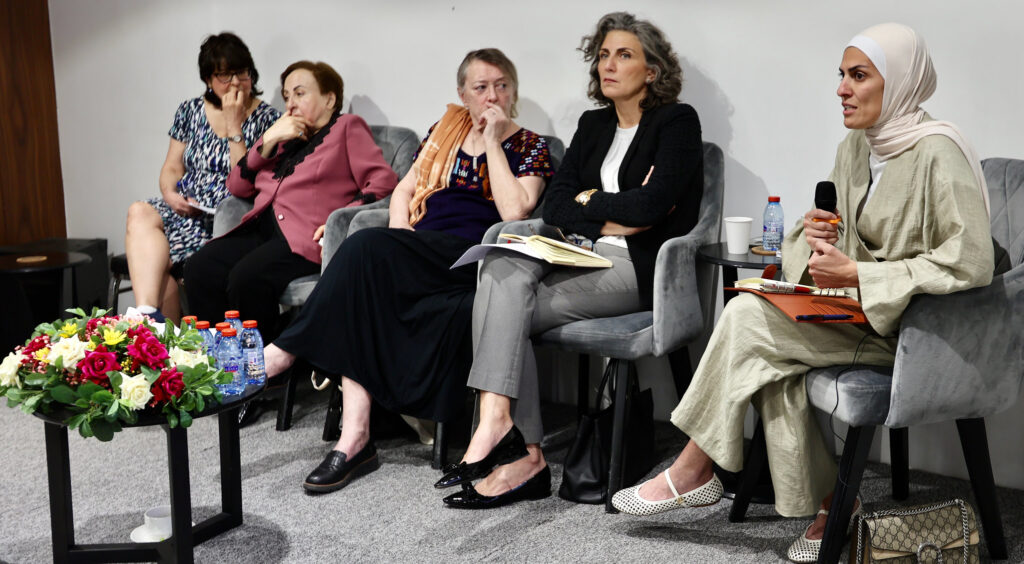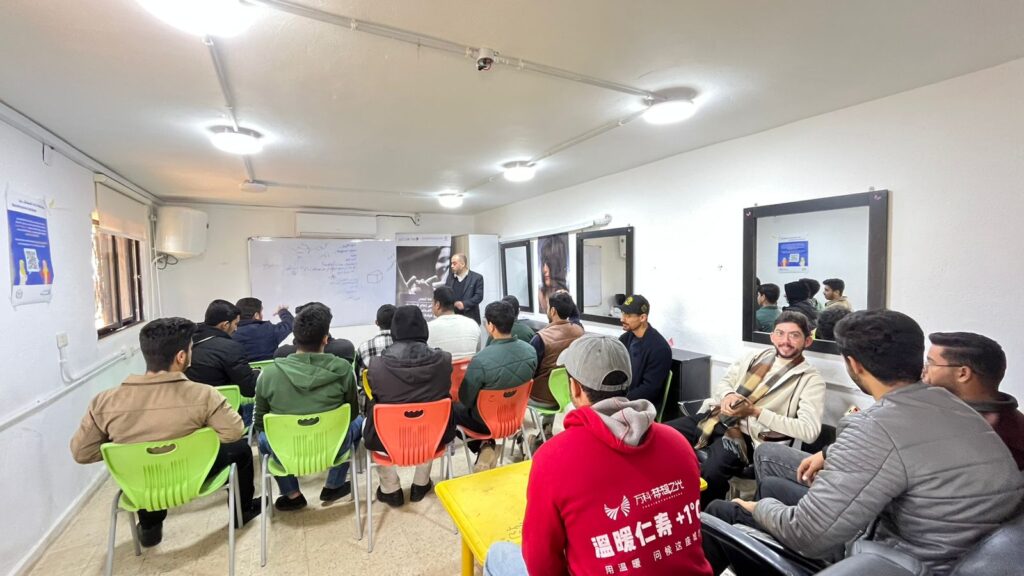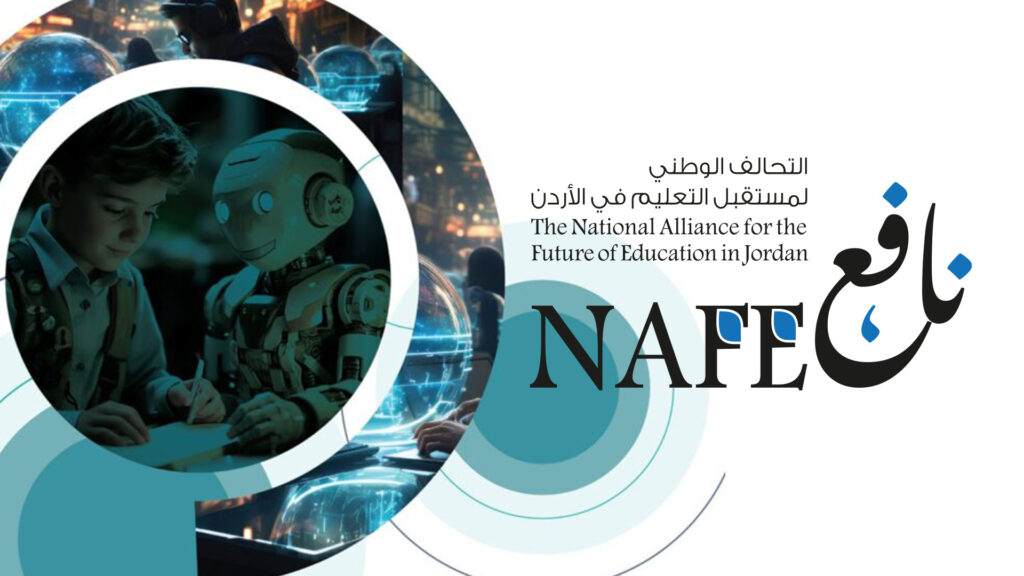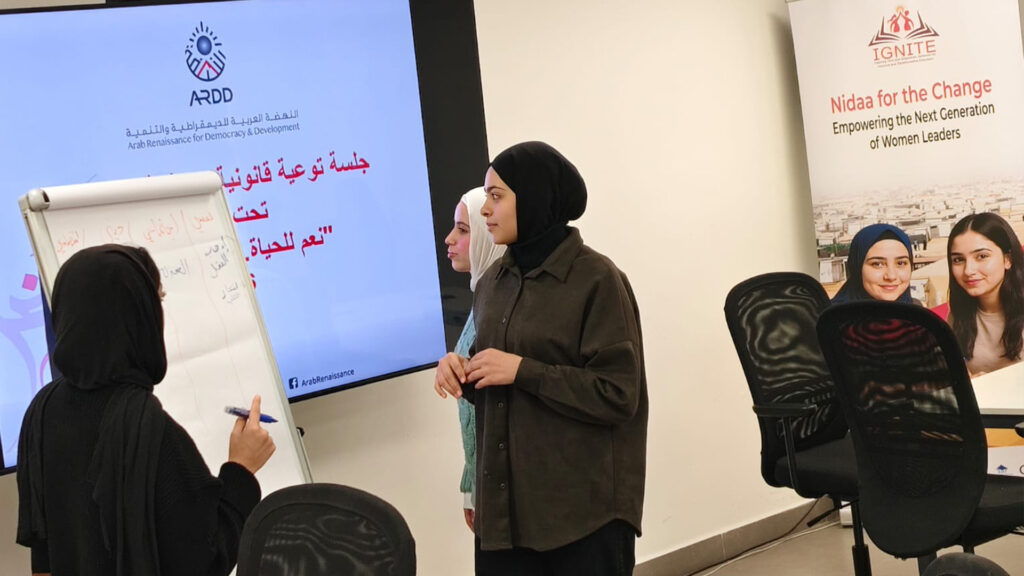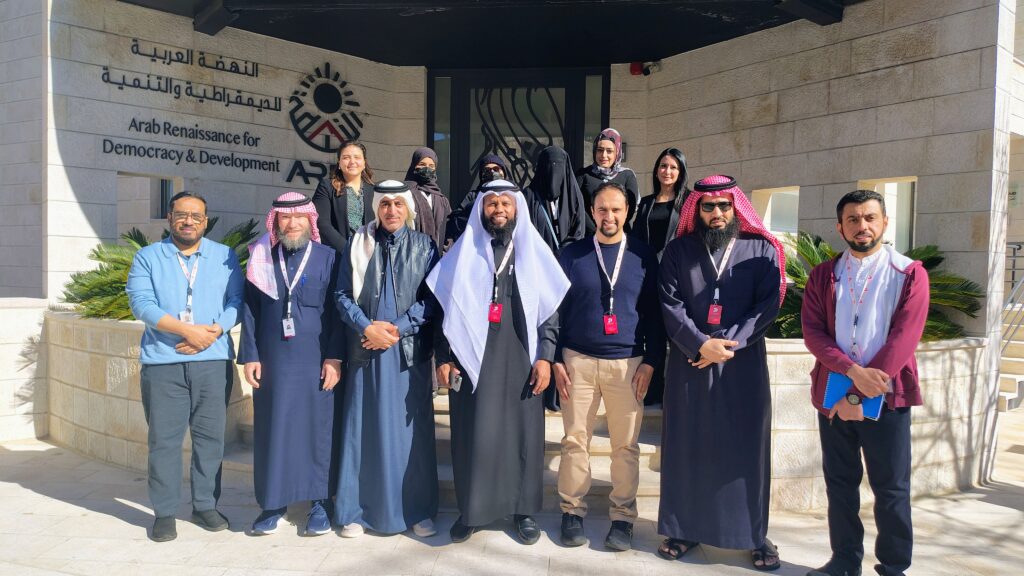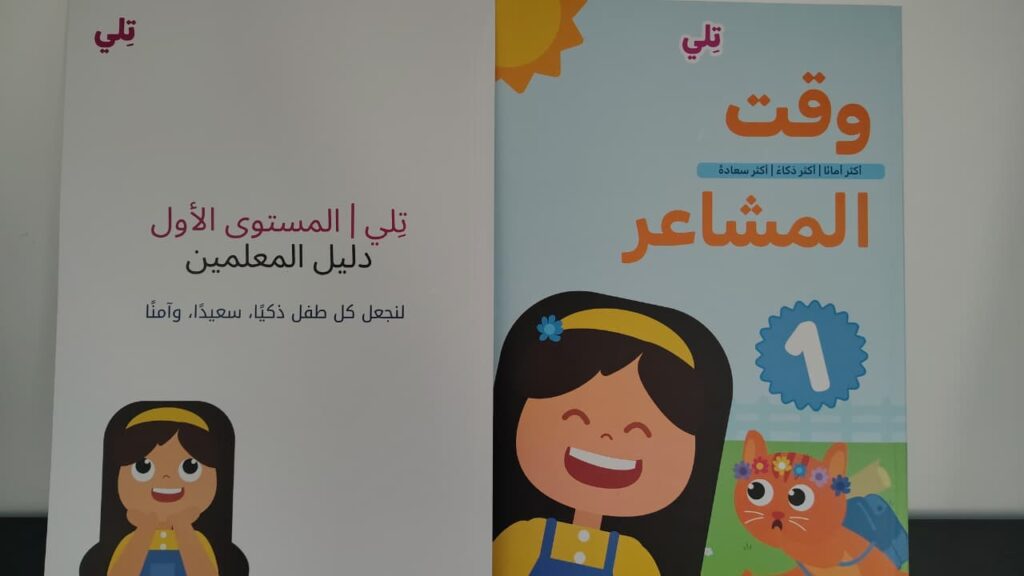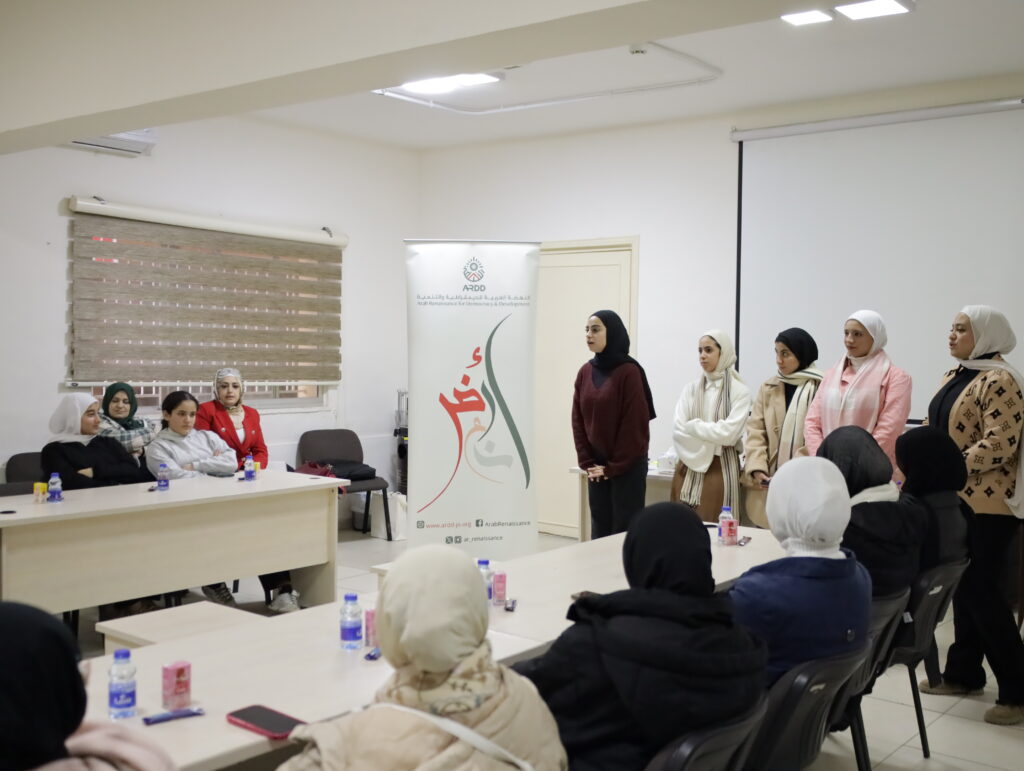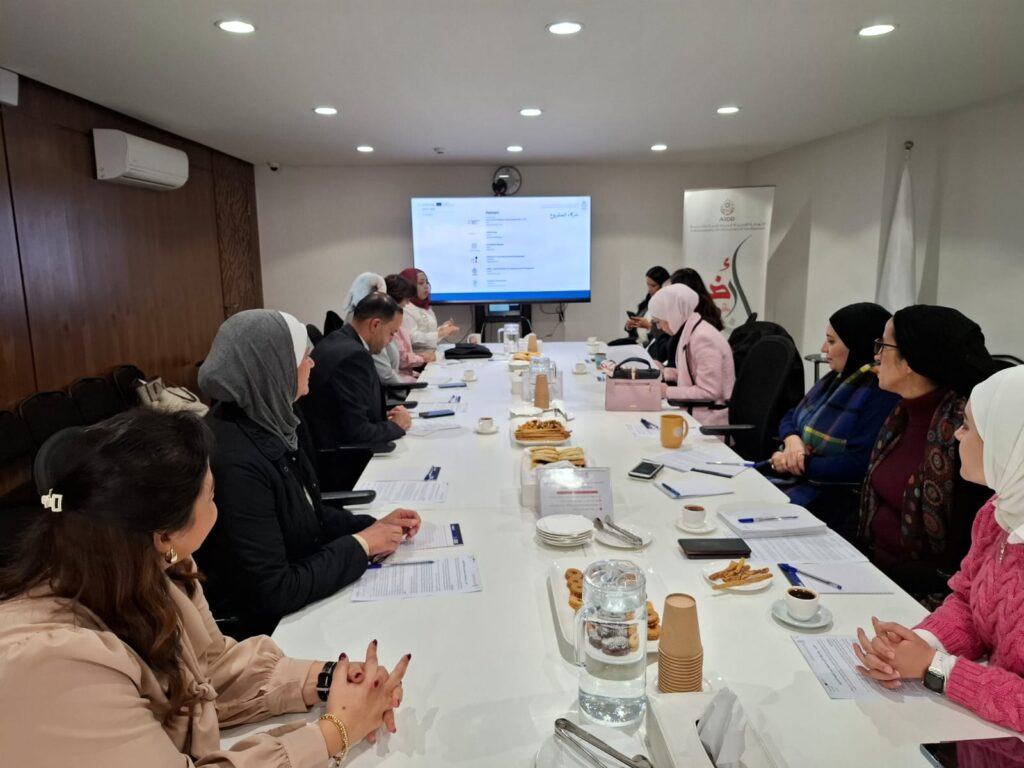In honor of the Nobel Women’s Initiative Delegation to Jordan and the Occupied Palestinian Territories, the Arab Renaissance for Democracy and Development (ARDD), in cooperation with Nobel Women’s Initiative, held a Roundtable on Wednesday, April 9th 2025, titled “Women’s Collective Power to Lead Peace and Security.” This roundtable brought together Nobel Peace Prize laureates, women leaders, human rights defenders, and advocates to explore the vital role of women in peacebuilding, human rights, and resilience.
In her opening remarks, Samar Muharab, Executive Director of ARDD, spoke about the need to embrace “radical love”, a principle of Nobel Women’s Initiative, and dispel the pluralization of hate that we are currently witnessing. The key themes of the event touched on promoting peace, justice, and accountability; empowering women’s leadership and political participation; and protecting civic space and civil society. Speakers emphasized women’s unity and solidarity as a tool for change. Rawan Yousef, Palestinian advocate, moderated the roundtable.
Dr. Aseel Jallad, obstetrics, gynaecology, and infertility specialist, gave a powerful and moving speech about the 800,000 extraordinary women in Gaza. After arriving back from her second mission last week, where she worked in a field hospital in Khan Younis, she talked about the extreme suffering and resilience of every single woman and girl in Gaza due to combination of military attacks, siege, and occupation. “We’re talking about girls growing up unsafe, in fear, hungry, thirsty and deprived of every single thing a girl needs” she said.
As a gender equality, inclusive development, and Women Peace and Security expert, Dr. Salma Al-Nims emphasised the importance of strengthening a coordinated feminist movement across the Arab world, coming together not just as women but as men as well. Noting that she is proud of Jordan as being an ethical voice for the last 16 months, she expressed the urgent need to decolonize the feminist struggle, opposing the selective application of rights imposed by a globalised, capitalist framework. By establishing a locally-driven agenda, she expressed the need for collective change where everyone is unified behind one cause – namely, solidarity with Palestine.
Dr. Shirin Ebadi, an Iranian human rights lawyer, who received the Nobel Peace Prize in 2003, addressed the audience by saying that “I’m here as an Iranian to demonstrate the solidarity of Iranian women with the women of Palestine”. In calling for genuine support for movements that prioritize human rights and justice, Dr. Ebadi advocated for a more authentic and compassionate approach to political solidarity that truly uplifts and empowers marginalized voices.
In complete solidarity with her friends and colleagues, American activist and Nobel Peace Prize laureate Jody Williams echoed the sentiments of her fellow speakers condemning the genocide and crimes of illegal occupation and sharing recommendations from her recent visit to Palestine. She went on to call for women everywhere to stand in unity, She said that “we need to have a true sense of our collective power as women.” Women need to forge connections not only at local and regional levels but also on a global scale.
The event brought together voices from across Jordan and Palestine, unifying women’s collective power. With both speakers and those in attendance calling for men and women to stand together against all forms of oppression, the event highlighted the need for collective power to lead to peace and security. In the current climate of a shrinking civic space, this roundtable comes at a pivotal time that calls for women’s engagement in all levels of society and for the decolonization of the feminist agenda.

